By: Malka Kopolovich, Lubicom Staff
Everyone loves summer. There’s pep in our steps and weight lifted off our shoulders as soon as those thermometer numbers start going up! It’s impossible for me to ever be in a sour mood if the sun is out. Yes, it’s hot and in some states, sticky, but warm fresh air is therapeutic. There’s no denying that a barbecue or a stroll outside while the sun is beaming does wonders for our physical AND mental health.
Bacteria also love summer! While I am not a scientist, it is proven that bacteria thrive in warm, moist areas. While you’re enjoying a warm day, so are the germs that cause foodborne illnesses. Whether you’re bringing food to a potluck event or BBQ, or hosting an event at home, bacteria love to find their way to food that isn’t handled properly.
So how do we avoid food-poisoning and spoiling our food? Follow these seven simple steps to keep you and your family safe from harmful uninvited guests.
(This post contains Amazon affiliate links. Kosher.com is a participant in the Amazon Services LLC Associates Program, an affiliate advertising program designed to provide a means for sites to earn advertising fees by advertising and linking to Amazon.)
1. The Two-Hour Rule
Food should never be sitting in room temperature for longer than two hours. Always keep track of what’s been out and how long, and don’t think twice about throwing the food out. People tend to say, “But it’s such a waste of food!” Your body is not a garbage can. Feed yourself fresh food, and discard anything that isn’t. Don’t take the risk – there are over 500,000 cases of food poisoning each year.
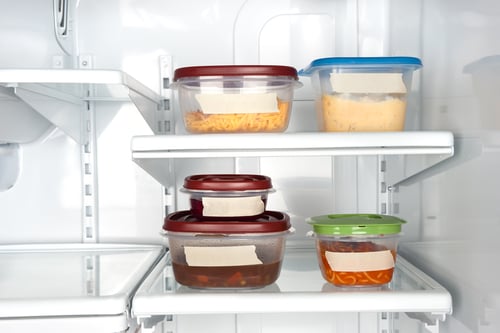
Also, leftovers should be thrown out after three days.
2. Keep Hot Foods Hot
Hot food is the perfect home for bacteria! So unless your goal is to give those bad boys a place to stay, keep hot food covered and hot until ready to serve. If you’re traveling to a BBQ, keep the meats in a cooler, and take them out only when you are about to place them on the grill.
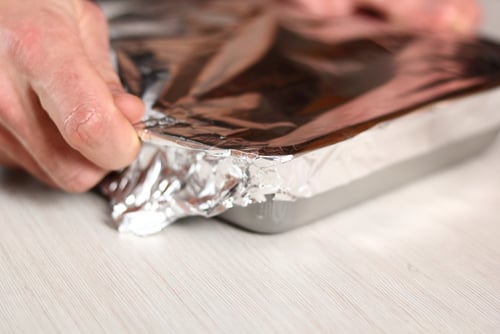
When it comes to reheating food, lukewarm food is never safe. Make sure there is eminent steam coming from the dish, and make sure every spot in the dish is steaming.
3. Keep Cold Foods Cold
You know the deal. Shop for frozen foods and meats last! If it’s a long drive home from the store or you’re traveling with the food, place the cold food in coolers full of ice packs. At a BBQ or picnic, keep salad bowls, cheese, and anything else you want to keep cold in pans of ice.
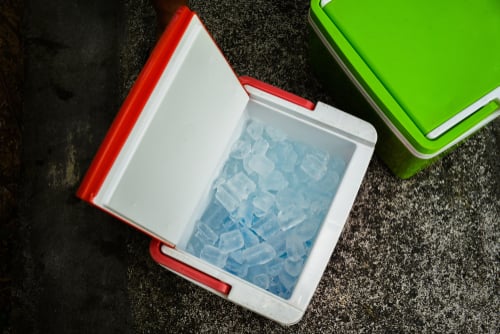
Don’t take out the entire dish; instead, serve a small bowl’s worth and refill when empty.
4. Wash Your Hands
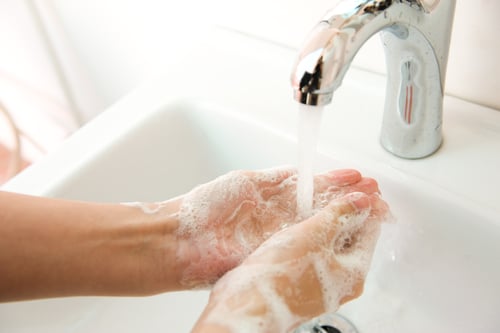
You would think that this is the mantra people use during flu season- but germs thrive in any sweaty fold! Keep your hands clean with antibacterial soap, especially when and after handling food to prevent cross-contamination.
5. Keep your kitchen clean
Always wash utensils with antibacterial dish soap directly after you’re done with them. Wipe counters with disinfecting wipes and never reuse pots, pans, or plates before washing them first.
6. Safe vs. Organic
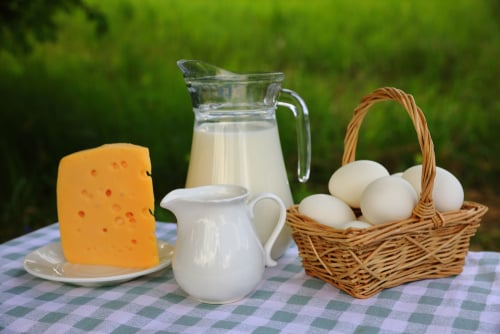
Organic seems healthy and the right choice to make, but pasteurized milk and eggs are safer to eat. Although it is never a good idea to leave either out of the fridge, especially on a warm day, pasteurized milk and eggs are meant to stay fresher. Both are heated briefly to kill harmful pathogens. Both of my parents grew up on farms, and they used to milk cows every morning. When they were done, they would heat up the milk very quickly to clean it from potential toxins.
7. Use a Food Thermometer
Hot foods should be kept at 140 degrees Fahrenheit or warmer, while cold food should be kept at 40 degrees Fahrenheit or colder. Using a thermometer is the best way to ensure that your delicious food is safe to serve! Never allow any dish to leave your kitchen without having a thermometer poked into it first. Of course, make sure to wash the thermometer with soap every time it’s used to prevent cross-contamination.
If you feel yourself getting sick from the food you ate, God forbid, flush it out with water. The unfortunate symptoms are there to help your body relieve itself from the toxins, so rest up, drink plenty, and allow yourself to ride it out. If you’re a guest at someone else’s meal, trust yourself and don’t eat food that you believe wasn’t handled properly.
Bottom line: Keep everything clean and covered. Stay hydrated, eat good, healthy food, and don’t second-guess your intuition. If you’re going back and forth on whether you should or shouldn’t throw something out, throw it out. Trust me, you are better safe than sorry!





